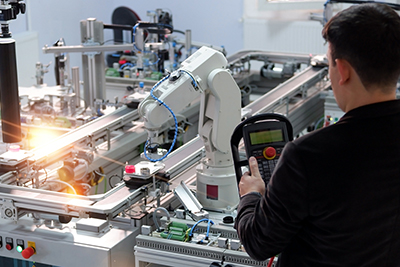As technology continues to evolve, consumers are becoming more accepting of robots playing a role in their daily lives. From smart home devices to automated cleaning tools, people are increasingly relying on machines to handle routine tasks. This shift has led to greater demand for appliances that offer convenience and efficiency, such as smart dishwashers, self-cleaning ovens, and robotic vacuums. Despite the growing consumer interest in automation, many appliance manufacturing plants still rely heavily on manual labor. However, with rising demands for faster production and higher quality, manufacturers are now turning to robotic automation as a solution. By integrating robots into their assembly lines, companies can improve efficiency, reduce errors, and meet the evolving needs of the market. While the complexity of modern appliances has increased, there are several key benefits to using robotics in their production. Here are three major advantages: Many aspects of appliance manufacturing involve repetitive actions that can be time-consuming and prone to human error. Robots excel at performing these tasks quickly and consistently, ensuring uniformity across every product. This not only speeds up the process but also maintains high-quality standards. Appliances must meet strict safety and performance regulations. Human workers, no matter how skilled, can make mistakes—such as missing a component or misplacing a part. Robots, on the other hand, follow precise instructions without deviation, reducing errors and ensuring compliance with industry standards. Although the initial investment in robotic systems can be high, the long-term savings from reduced labor costs, fewer defects, and increased output often outweigh the expenses. Additionally, modern robots can work alongside humans, enhancing productivity without replacing the workforce entirely. Robotics is no longer limited to the automotive or aerospace industries. It's making a significant impact across various sectors. In consumer electronics, robots are used to assemble smartphones with precision. In retail, automated systems help warehouses manage inventory and fulfill orders more efficiently. Even in agriculture, robots are being deployed to monitor crops and optimize water usage. With the right automation solutions, businesses can streamline operations, improve accuracy, and stay competitive in an ever-changing market. Whether it's through robotic assembly lines or smart logistics systems, the future of manufacturing is being shaped by intelligent automation. Discover how Genesis Systems is helping businesses in light industrial markets leverage robotics and automation to drive growth and innovation. 7kw ac charger, Dual 7KW ev charger, Commercial 7KW ev charger, 7kw Charging pile Xuchang Shuoniu New Energy Technology Co., Ltd. , https://www.shoniu.comAppliance Manufacturers Are Turning to Robots to Enhance Efficiency

The Advantages of Robotic Manufacturing in the Appliance Industry
1. Speed and Consistency in Repetitive Tasks
2. Precision and Compliance with Standards
3. Long-Term Cost Savings and Flexibility
Robots Are Transforming More Than Just Manufacturing